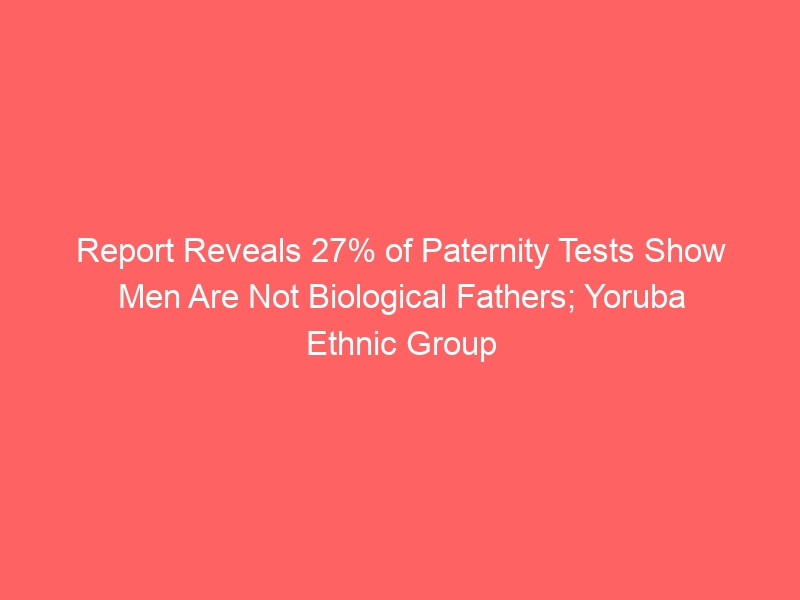Smart DNA, a leading DNA testing center in Lagos, has released its comprehensive 2024 report on DNA testing trends in Nigeria, covering the period from July 2023 to June 2024. The report unveils several astonishing findings that shed light on societal dynamics, economic factors, and changing family structures in Nigeria.
The report reveals that 27 percent of paternity tests conducted came back negative, indicating that more than one in four men tested are not the biological fathers of the children in question.
There was a significant increase in DNA tests for immigration purposes, reflecting the high demand driven by the “Japa” trend, as more Nigerians seek opportunities abroad. The trend also indicated a growing number of parents with dual citizenship processing paperwork for their children’s emigration.
Lagos dominated the testing landscape, with 73.1 percent of all DNA tests conducted in the city. This concentration highlighted the economic divide within Lagos, showing a stark divide between Mainland (67.5 percent) and Island (32.5 percent) areas. The disparity raised questions about access to DNA testing services in other regions of Nigeria.
The Yoruba ethnic group accounted for 53 percent of tests, followed by Igbo (31.3 percent), with Hausa at only 1.2 percent.
The majority of children tested were aged 0-5 years (54.0 percent), suggesting a preference for early paternity confirmation. Men aged 41+ (45.6 percent) and 31-40 (37.0 percent) were most likely to request tests, possibly reflecting economic capabilities or increased paternity concerns in older men. There was also a slight gender bias in child testing, with more tests conducted on male children (52.8 percent) than female children (47.2 percent), indicating a possible cultural preference.
Peace of mind was the dominant reason for DNA testing, with 85.9 percent of tests conducted for personal assurance rather than legal motivations.
Elizabeth Digia, Operations Manager at Smart DNA, commented on the report: “These findings offer a unique window into the changing dynamics of Nigerian families and society. The high rate of negative paternity tests and the surge in immigration-related testing are particularly noteworthy. They reflect broader societal trends that merit further discussion and research. The concentration of testing in Lagos also raises important questions about accessibility and awareness of DNA testing services across Nigeria. As a company, we’re committed to expanding access to our services nationwide while maintaining the highest standards of accuracy and confidentiality.”
The News Agency of Nigeria (NAN) reports that these insights highlight key trends and issues within the DNA testing landscape in Nigeria, underscoring the need for further examination and expansion of services.












